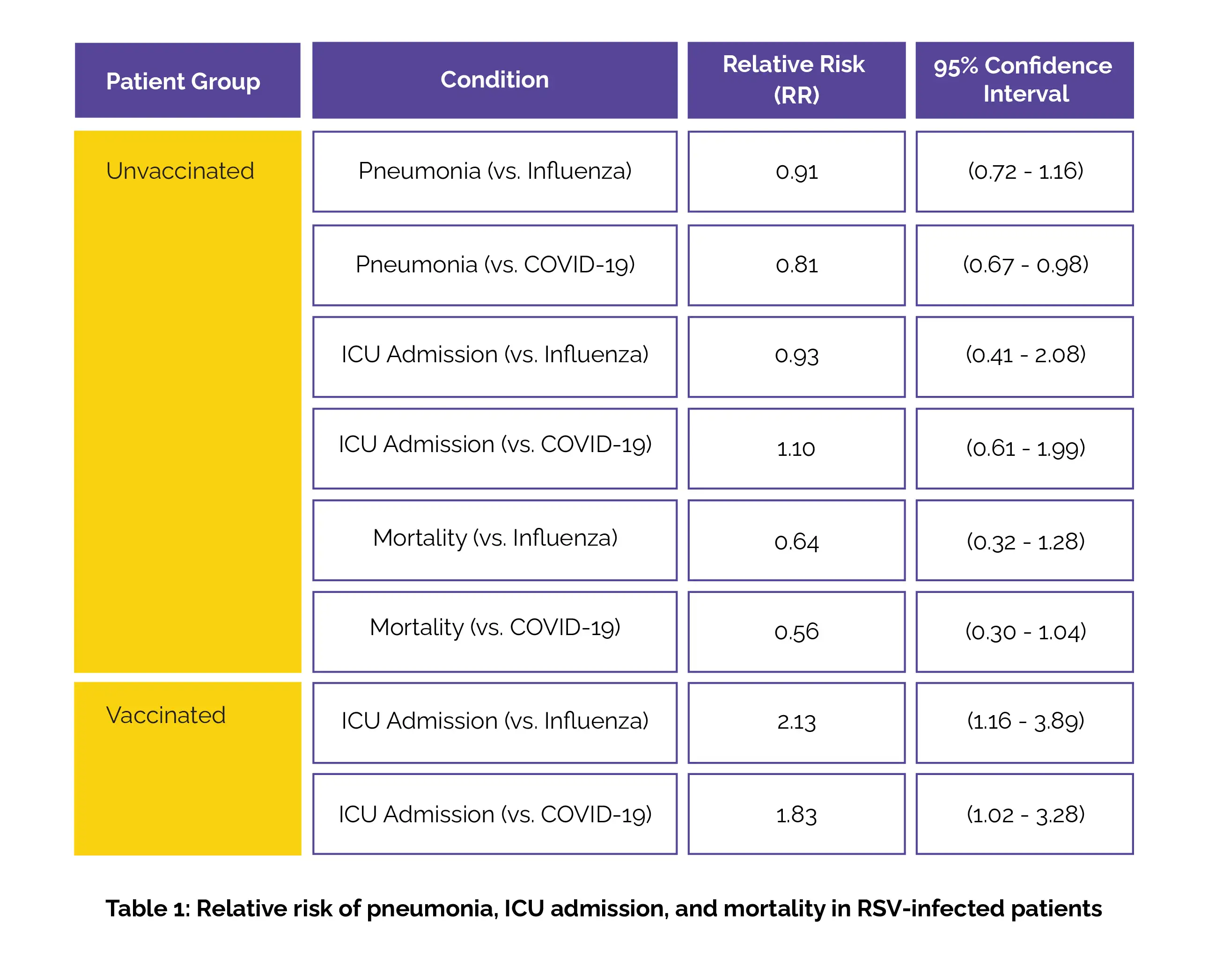Categories
Change Password!
Reset Password!


Respiratory syncytial virus vaccination can prevent severe illness and reduce hospitalizations, especially in high-risk populations.
Recent research issued in ‘The Journal of Infection’ indicated that the severity of respiratory syncytial virus (RSV) is comparable to or even less than that of influenza or SARS-CoV-2. However, there is a need for preventive vaccination against RSV given the higher rates of intensive care unit (ICU) admissions associated with RSV infection.
Lorena Vega-Piris et al. aimed to assess the risks of pneumonia, ICU admission, and mortality in hospitalized patients aged 65 and older diagnosed with RSV, comparing these outcomes to those associated with influenza and COVID-19. This study was based on the data from the Spanish Acute Respiratory Infection Surveillance System (SiVIRA), which focused on patients who were positive for RSV, influenza or SARS-CoV-2.
The relative risk (RR) of pneumonia, ICU admission, and in-hospital death among RSV patients versus those with influenza or COVID-19 were estimated, adjusting for factors such as age, sex, season, and pre-existing conditions via the binomial regression models. The vaccination status for influenza or SARS-CoV-2 was also considered.
Among the unvaccinated patients, those with RSV faced a similar or lower risk of pneumonia compared to influenza and SARS-CoV-2. ICU admissions were also comparable, and mortality risks were lower with RSV. In contrast, vaccinated patients exhibited similar patterns, but those with RSV showed a markedly increased risk of ICU admission compared to influenza and SARS-CoV-2, refer to Table 1:

While RSV may not be more severe for the unvaccinated, its higher ICU admissions suggest a need for enhanced preventive strategies.
The Journal of Infection
Severity of Respiratory Syncytial Virus compared with SARS-CoV-2 and Influenza among hospitalised adults ≥65 years
Lorena Vega-Piris et al.
Comments (0)